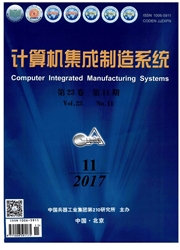

 中文摘要:
中文摘要:
针对确定性动态需求下单供应商两分销商的供应商管理库存供应链,考虑分段的运输成本函数以及服务水平约束,建立了供应商管理库存实施前和实施后未进行利益协调情况下的补货模型。通过对该模型进行转换处理,采用混合整数规划方法求解,避免了用动态规划方法求解过程中补货发货规则的推导。通过供应商管理库存实施前后供应商与分销商利益的对比分析发现,供应商管理库存在使供应链总利润增加的同时,供应商的利润可能不增反降,如不进行利益的重新分配就可能导致供应商管理库存的实施难以为继。在此基础上,设计了根据分销商销售收入进行利益共享的供应链收益分享机制,协调供应商管理库存实施后供应商与分销商的利益,并用算例验证了补货模型构建以及收益分享契约的协调机制设计。算例结果显示,在设计的收益分享系数下,随着供应商管理库存实施后供应链总利润的增加,供应商与分销商的利润均不低于供应商管理库存实施前,或有不同程度的增加。
 英文摘要:
英文摘要:
Aiming at the Vendor-Managed Inventory(VMI) supply chain consisting of one supplier and two-distributors under certainty dynamic demand,the replenishment model without interest coordination before and after the implementation of VMI was built by considering the sectional transportation cost function and service level constraint.A mixed integer programming method was used to solve the model after a conversion process,which avoided the derivation of the replenishment rules by using dynamic programming method.Comparative analysis of supplier and distributor's benefit before and after the implementation of VMI revealed that the supplier's profit might decrease when supply chain's total profit increase by using VMI.A revenue sharing mechanism based on sales income was designed to coordinate the profits of the supplier and distributors after the implementation of VMI.A numerical example was presented to verify the theoretical modeling and solution.Numerical results showed that,as the total profits of supply chain increased after VMI implementation,the profits of the supplier and distributors were not less than before with the revenue sharing factor designed.
 同期刊论文项目
同期刊论文项目
 同项目期刊论文
同项目期刊论文
 Multi-criteria robust design of a JIT-based cross-docking distribution center for an auto parts supp
Multi-criteria robust design of a JIT-based cross-docking distribution center for an auto parts supp 期刊信息
期刊信息
